Coronavirus Australia: When will lockdowns end in my state?
The Northern Territory has outlined its plan to lift lockdown restrictions from tomorrow, with businesses able to reopen from next month.
Outdoor weddings and funerals will be allowed across the Northern Territory from Friday and restaurants, cafes and bars will be able to reopen from May 15 when some COVID-19 restrictions are lifted.
The NT Government has announced a two-staged approach and some limitations will still apply, with venues required to complete a safety plan to ensure physical distancing and good hygiene.
Chief Minister Michael Gunner says the success of the staged lifting of restrictions will depend on Territorians “being the best they can be”.
The Territory has been the first part of Austrlalia to flag reopening such businesses, but states have also announced their plans to ease restrictions.
New South Wales this week joined Queensland and Western Australia in beginning to return to a “new normal”.
NSW Premier Gladys Berejiklian announced social restrictions would be relaxed this Friday, allowing two adults at a time to visit each other across different households. .
“We know many people have been cooped up for a number of weeks,” Ms Berejiklian said. “We know it’s been difficult.”
But Victoria Premier Daniel Andrews says Victoria will not yet relax its social distancing restrictions, saying he wants the state to exercise caution.
“There are a number of cities and countries around the world that have eased off the sort of restrictions that they had in place. That might have made them very popular at the time, but not long after that, the virus got away from them,” he said at a press conference today. “They were left in the terrible position where they had to wind back, they had to put even harder lock down provisions in place.
“We don’t want that here.”
Here is the current situation across the country.
NORTHERN TERRITORY
The Northern Territory remains in the best position overall, with just 28 confirmed COVID-19 cases and only five of those still active.
Parks and reserves across the Northern Territory will reopen from noon as Chief Minister Michael Gunner begins lifting restrictions imposed because of the global coronavirus pandemic.
Outdoor weddings and funerals will also be allowed from Friday.
Restaurants, cafes and bars will be able to reopen in two weeks’ time, from May 15, but will have to have a safety plan in place to ensure physical distancing and good hygeine.
A two-hour time limit will also apply.
On the same date places of religious worship, libraries, beauty therapies for non-facial services “like getting your nails done” will also be allowed to reopen with a safety plan in place.
It will also include organised outdoor training activities for clubs and teams without physical contact, Mr Gunner announced.
“For businesses and organisations that open or expand operations under these rules, they will need to have a COVID-19 management plan in place,” he said.
“This will be a simple checklist to show how your venue can adhere to physical distancing, hygiene and cleaning principles.”
The Chief Minister flagged the planned reopenings on his Facebook page on Monday, warning it would count on Territorians sticking to the rules.
“I’ve said it before, and I’ll say it again, easing restrictions will actually increase responsibility on all Territorians to keep doing the right thing,” he said.
“That will be our new normal and we can’t afford to go backwards or do it all again.”
The reopening of parks this weekend coincides with the Labour Day holiday on Monday.
“Territorians will have the opportunity to safely spend this weekend camping, swimming or walking through our beautiful parks and reserves and enjoying the Territory lifestyle that we all love,” Mr Gunner said.
“We can only do this because of the work and sacrifices of Territorians and we can only keep our parks open if Territorians are respectful of each other’s space.
“We cannot take for granted that we are the safest place in Australia, and we have to work to keep it that way.
“This is the first significant step we are taking to adjust our coronavirus- related restrictions.”
WESTERN AUSTRALIA
Picnics, boating, hiking, camping and group exercise are back for Western Australians, and couples can now have a few more people at their wedding after the state relaxed its coronavirus restrictions.
But other restrictions related to restaurants, play equipment and travel bans remain in place.
The State Government announced on Sunday that it was increasing its two-person limit on non-work activities to 10, providing people adhere to social distancing and good hygiene.
Premier Mark McGowan said while WA was still in a state of emergency, low numbers of confirmed cases meant a “cautious relaxation” of restrictions was possible.
“Our numbers may be low but we need to keep it that way,” he told reporters.
WA recorded no new cases of COVID-19 on Sunday.
The state has confirmed 549 coronavirus cases, but only 55 remain active.
There are 16 people in Perth hospitals, including four in intensive care.
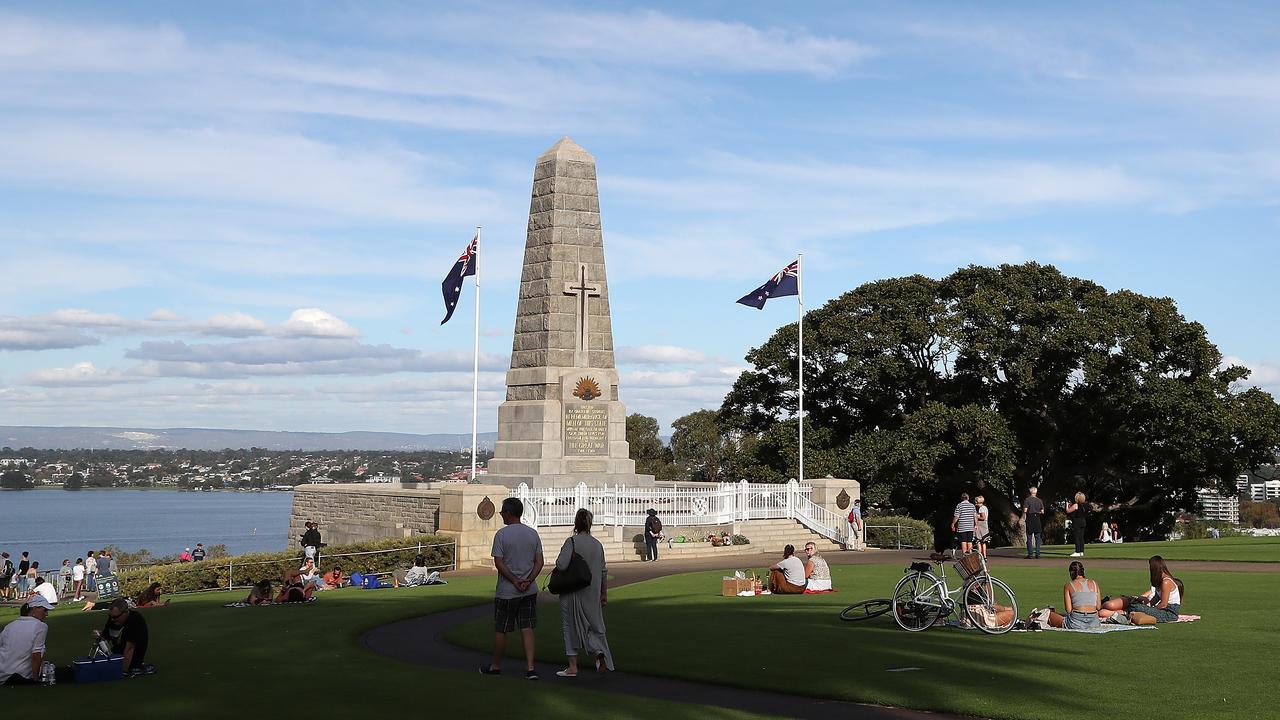
QUEENSLAND
Stay-at-home COVID-19 restrictions will be eased from next weekend, but Queensland’s borders will remain closed.
Family picnics and weekend drives will be permitted, and national parks will reopen next Saturday with residents directed to travel no further than 50km from their homes.
Premier Annastacia Palaszczuk said the easing of stay-at-home restrictions would start at midnight on Friday.
It means from Saturday, people can travel 50km from home to visit parks, have a picnic and jet ski, while shopping for non-essential items is also permitted.
However, the Premier has warned that movement was “limited to members of your own household”.
“We will be able to lift some of the stay-at-home restrictions and … we really need the public to 100 per cent co-operate,” she told reporters on Sunday.
“If we do see mass gatherings, I will not hesitate to clamp back down.”
The Premier said the 50km limit was to avoid large-scale movements of people between places like “Cairns to Townsville”, and borders would remain closed.
Despite the easing of restrictions, there will be no cross-border travel for those living near the NSW border.
Ms Palszczuk said border closures were the reason both Queensland and the nation had been able to stymie the spread of COVID-19.
“There’s still large community transmission in NSW and Victoria … and one of the two key measures taken was to close our international borders and close our state borders,” she said.
The Premier said people from Victoria and Sydney had come to Queensland and tested positive, so the borders would not be opened in the immediate future.
Health Minister Steven Miles said there were just 98 active cases across the state, with Queensland’s infection total sitting at 1030.
Three new cases were recorded on Saturday, while another was added from previous testing.
There are 18 people in hospital, of which six are in intensive care with five on ventilators.
Of concern was that of the two cases announced on Saturday, authorities had yet to determine where one person contracted COVID-19 on Brisbane’s north side.
RELATED: Follow our live coronavirus updates here
RELATED: Huge number of Aussies download contact tracing app
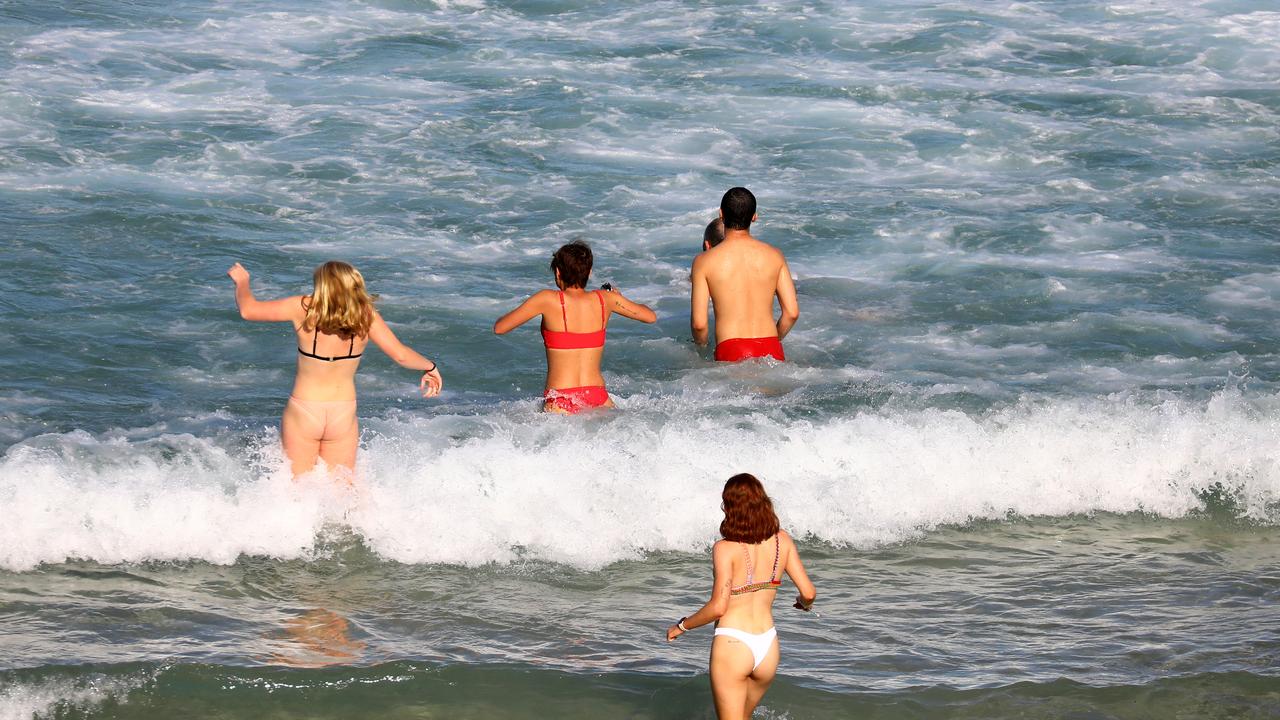
NEW SOUTH WALES
NSW will ease its social distancing restrictions, allowing up to two adults and young children to visit people in another household.
“We know many people have been cooped up for a number of weeks,” said NSW Premier Gladys Berejiklian. “We know it’s been difficult.”
The easing will come into effect on Friday, May 1.
The Premier noted the government will “not limit what those visits entail”, but urged people to “act responsibly”.
“At the end of the day, it comes down to a level of social responsibility,” she said. “This isn’t a licence to go wild and have massive parties, but it is a licence to be socially responsible and accept that the government is easing these restrictions to supply better mental health and less social isolation for everybody.”
The Premier stressed that people must continue to practise social distancing, particularly when it comes to the elderly.
“I do want to stress that if you’re visiting someone who is over 70 years of age, or someone with a co-morbidity, you have to practise really good social distancing,” she said. “If you have the mildest sniffle, do not go and visit anybody. If you’re feeling slightly unwell or fatigued, don’t risk it.
“Similarly, if you’re over 70, we still recommend that you keep leaving home to a minimum, but if you do feel that you need to go and visit someone in their home, please make sure that similarly, you ask questions about making sure that everybody is well, making sure that everybody practises good social distancing.”
NSW has recorded more than 3000 COVID-19 cases but fewer than 800 of those are active.
Nineteen people are in intensive care.
The state’s death toll stands at 37 after a seventh resident of Newmarch House in Caddens died on Monday night.
The Anglicare aged care facility is the state’s largest ongoing cluster, with some 31 of the almost 100 residents having been infected as well as 17 staff members.
NSW has recorded five new cases in the last 24 hours, taking the state’s total to 3009.
These five cases came from a batch of over 4000 tests across the state.
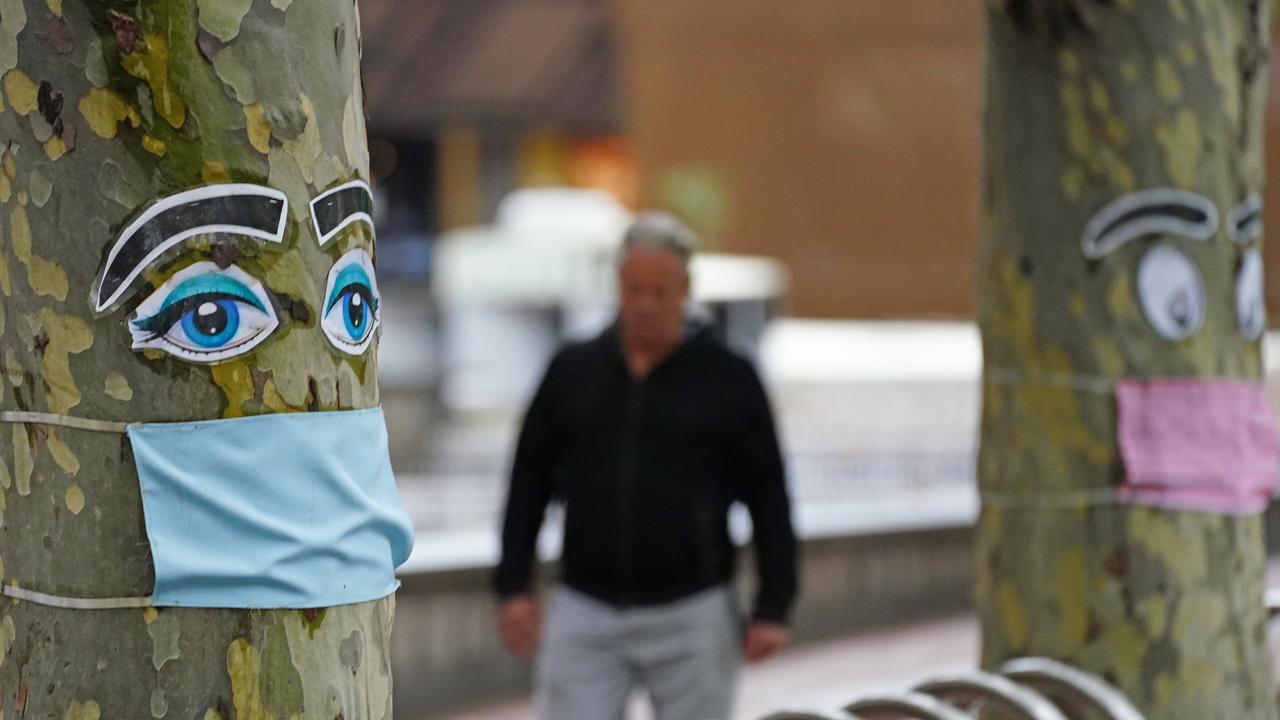
VICTORIA
Victoria will not follow in the footsteps of other states in easing some social-distancing measures despite a falling infection count.
The state’s coronavirus death toll has risen to 17, with Health Minister Jenny Mikakos confirming a man in his 90s who contracted COVID-19 died in hospital, while three more people tested positive to the virus on Sunday.
Of the three new cases, one was a patient at the private psychiatric facility the Albert Road Clinic, which has been the centre of an outbreak.
At least 16 staff, patients and known contacts have contracted the virus at the facility.
The state’s total number of COVID-19 cases sits at 1349, though 1265 people have recovered.
Chief health officer Brett Sutton said the low case numbers were encouraging.
“They prove that our physical-distancing measures are working, but this is not a time to relax our strong approach – this disease can get away from you very quickly as we have seen in cities overseas,” Professor Sutton told reporters on Sunday.
He said he had no intention of altering Victoria’s stay-at-home measures until the state of emergency ended on May 11 despite moves by Queensland and Western Australia to ease some restrictions this week.
“I don’t know what transmission will look like this week or next week, but I think the state of emergency going to May 11 is a nice line-up with the National Cabinet process for a real look at changing the restrictions,” Prof Sutton said.
He also rebuffed calls from the state opposition and Federal Government to return to face-to-face learning before the end of term two.
The Victorian Government has encouraged parents to keep their children at home for all of term two.
Schools are open for students who cannot learn from home and the children of essential workers.
“My advice hasn’t changed,” Prof Sutton said.
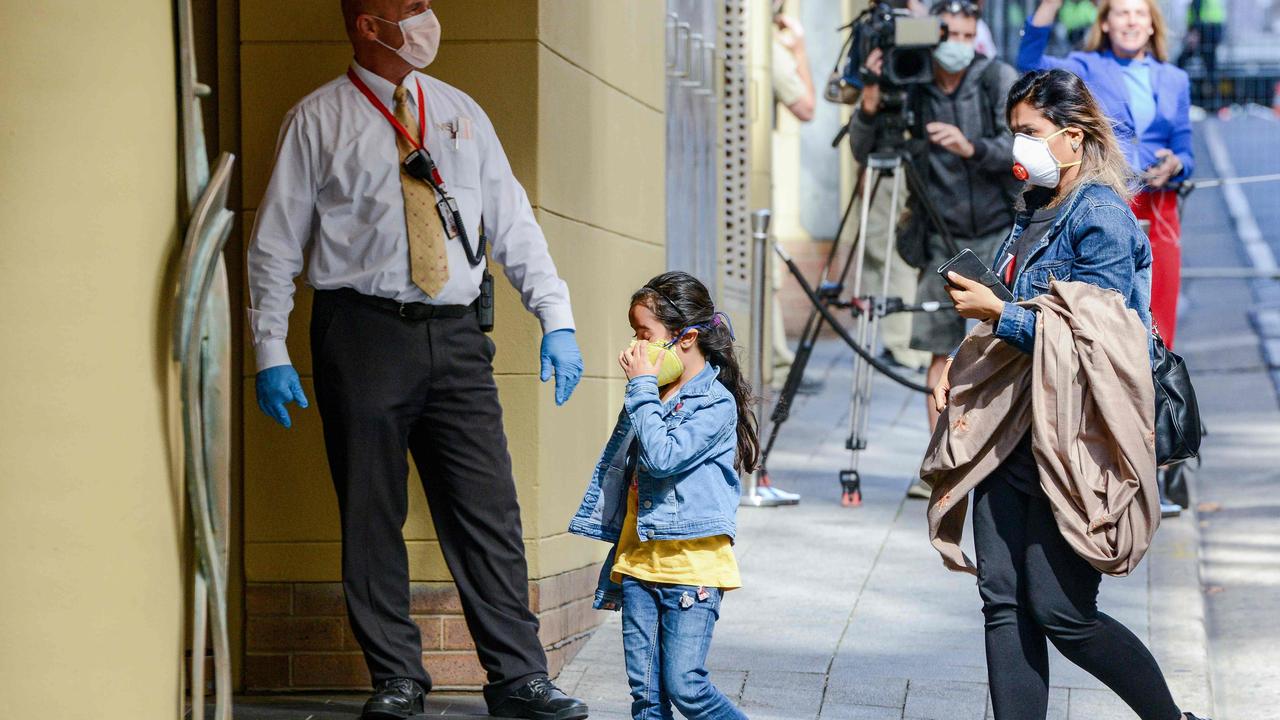
SOUTH AUSTRALIA
South Australia recorded no new cases of coronavirus for the fourth consecutive day on Sunday.
The state has recorded 438 cases of COVID-19 to date, with 23 of those active.
Health Minister Stephen Wade said the Government was not looking at easing restrictions “any time soon” despite other states such as Western Australia relaxing their rules.
“Our restrictions are actually not as severe in some respects as other states and territories,” he told reporters.
South Australia’s existing restrictions are more in line with Western Australia’s relaxed version.
Chief public health officer Nicola Spurrier said going forward the state would be “even more cautious” because while “a lot has been learned about the virus, there is still a lot we do not know”.
"This is an ultra-marathon and this pandemic is going to be with us for a long time,” she said.
Meanwhile, the South Australian Government is urging people with serious medical issues to not let the coronavirus pandemic deter them from seeking help.
Mr Wade said there had been a significant reduction in emergency department presentations, ambulance call-outs and GP visits.
He warned that people should not delay seeking treatment for an acute illness or chronic health condition out of fear of contracting COVID-19.
In the first two weeks of April, South Australia’s major metropolitan hospitals had about 8000 emergency department presentations – a 32 per cent decrease compared with the same time last year.
There were about 8400 hospital inpatient admissions, which represented a 25 per cent decrease.
Deputy chief public health officer Michael Cusack said delaying treatment could have serious long-lasting effects.
“We want to ensure that members of the public seek help immediately if they think they may be experiencing a heart attack, stroke or other medical emergency,” he said.
“Please do not let concerns about COVID-19 cost you your health.”
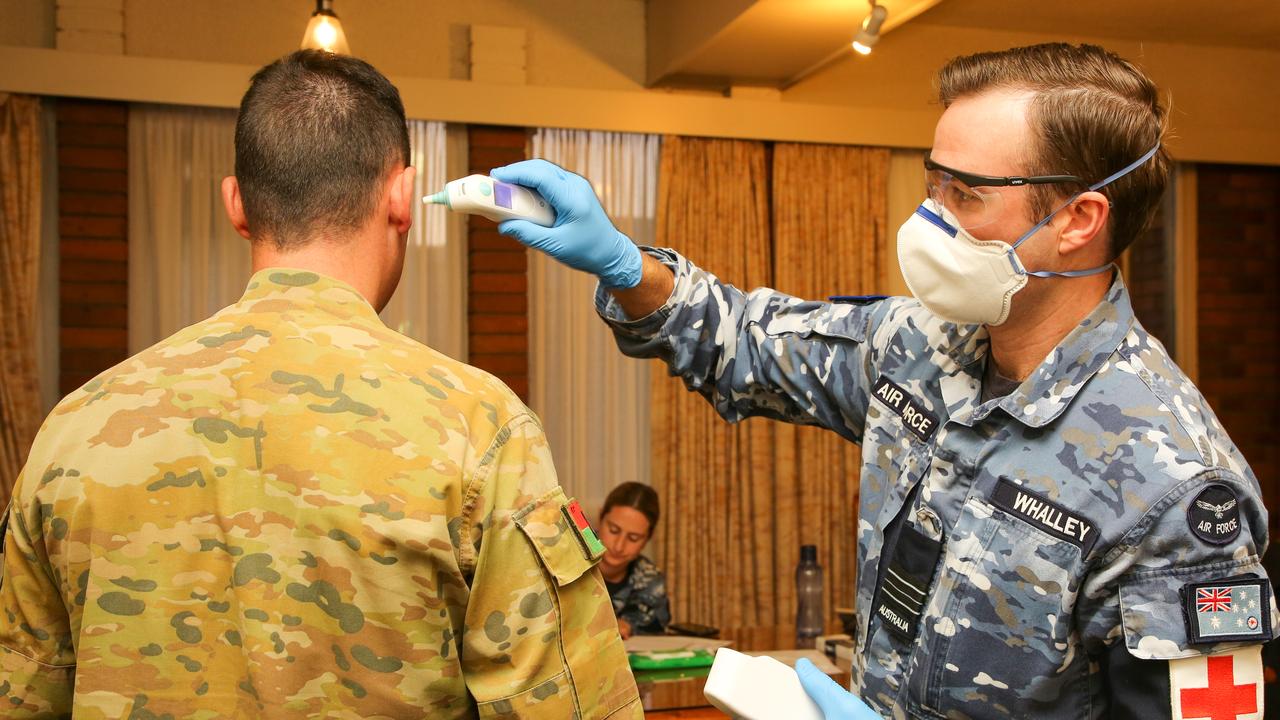
TASMANIA
Tasmania has two sets of restrictions – statewide rules and a second set of harsher restrictions for the northwest region where there has been an outbreak that started among healthcare workers.
The region has been responsible for 10 of the state’s 11 COVID-19-related deaths and more than half of the state’s 212 cases.
Premier Peter Gutwein said the northwest restrictions would be in place until at least May 3, and the statewide restrictions would be revisited on May 15, but people should not expect things to go back to normal.
"Social distancing will need to occur, businesses will have to change their operating models (until there is a vaccine)," he said, the ABC reports. "It simply won't be business as usual and I think people understand that."
AUSTRALIAN CAPITAL TERRITORY
The Australian Capital Territory continues to report very low numbers of COVID-19 infections, with no new cases on Sunday.
There are only seven active cases out of 106 confirmed tests so far and only one person in hospital.
ACT Chief Minister Andrew Barr said some restrictions could be eased soon but wanted to stay in line with NSW as much as possible.
“Smaller family gatherings and smaller gatherings outdoors … are relatively low-risk in an environment where there are no active cases in the ACT for a two-week period,” Mr Barr said, the ABC reports.
“Were we to reopen bars and restaurants, but they remained closed in NSW, then we would get quite an influx of people into the territory and that would lead to an increased risk. The biggest challenge is if we significantly loosen restrictions and then cases take off again, we may find ourselves having to lock back down and maybe even more severely."



